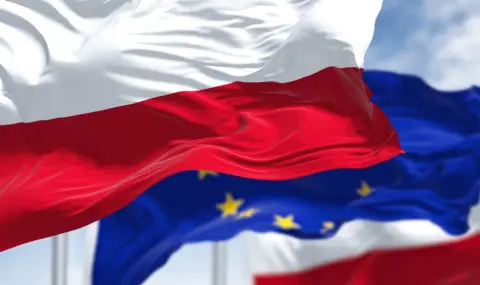Poland will make joint defense financing a top priority during its six-month presidency of the Council of the European Union, reports News.bg
According to Polish Finance Minister Andrzej Domanski, security should be seen as a shared responsibility of all member states. “Security is a common good, so we need a common solution. There must be a European solution,” emphasized Domanski.
The European Commission has estimated the cost of improving the EU's defense capabilities at €500 billion or more over the next ten years. EU finance ministers will discuss different possible funding models at a meeting in April in Warsaw.
Efficiency and Cooperation in Defense
Besides the financial aspects, Domanski emphasizes the need for greater efficiency in defense projects. He gave an example of the diversity of military equipment in Europe, pointing out: “The existence of 12 different tank systems in Europe is madness.“
Major initiatives, such as the construction of a European air defense system, in his opinion require not only significant funds, but also close cooperation between countries. “These are not just financial issues. A coordinated approach is needed between all countries,” noted the minister.
The Funding Debates: Loans and Legal Challenges
Co-financing of defense projects is a complex issue, with two main ideas already on the negotiating table.
The first option envisages using the EU's long-term budget as a guarantee for new loans, modeled after the €800 billion post-Covid-19 recovery fund. However, this model can be challenging as it requires unanimity among all 27 member states.
The other possibility is the creation of a special purpose vehicle that would borrow on the basis of contributed capital, along the lines of the European Stability Mechanism. This solution offers more flexibility, but also less control from the European Commission.
Obstacles and diplomatic challenges
EU diplomats say legal obstacles to new loans can only be overcome if they are treated as an emergency measure, similar to actions taken during the pandemic. However, certain countries, such as Germany, remain skeptical.
”It is clear from my conversations with other finance ministers that there is broad support for the view that we need to do much more like Europe,” Domanski said. “However, it is too early to determine which model will be chosen.“
The size of the necessary funds will become clear after the publication of a report by the European Commissioner for Defense Andrius Kubilius, which is expected at the beginning of March. The report will outline priority areas for defense investment.
However, negotiations are still at an early stage. “We may start tying our shoes before we go to the start,” commented an EU diplomat, emphasizing the complexity of the issue.
